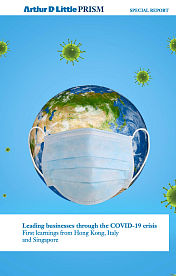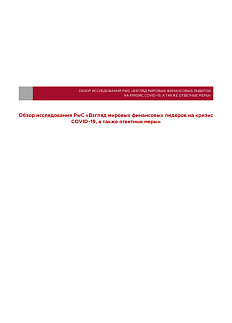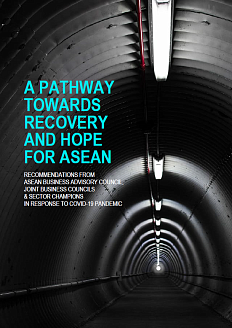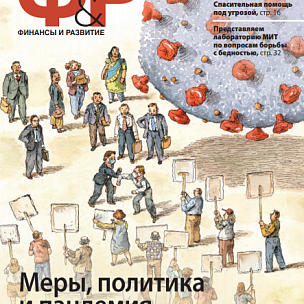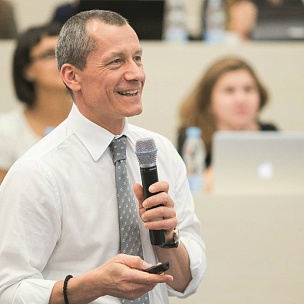A study by Arthur D. Little provides a list of key learnings from business representatives in Hong Kong, Italy and Singapore made in response to the COVID-19 crisis.
Analysts at the Roscongress Foundation have identified the main points of this study, accompanying them with relevant video broadcasts of panel discussions held as part of business programmes of key international events held by the Foundation.
1) The speed of management response is decisive in a crisis situation
The difference between Asian and European crisis management is stark: Asian companies learned tough lessons from the SARS outbreak in 2002, and many had already regularly drilled business continuity plans in place, specifically for epidemics. Other companies, such as those in Hong Kong, had been able to road-test contingency plans during the regions’ social unrest in 2019. Indeed, properly testing and drilling plans in ‘peacetime’ is seen by leaders as essential; otherwise, you can be fairly certain that your crisis response will be inadequate. The most important immediate priority is to mobilize a crisis management ‘war room’ to manage the first few days of the response. Most companies aim to focus on two things during the initial phase: first, ensuring safety; and second, maintaining an appropriate level of operational continuity, with other actions following on from this. Nearly all companies also have recovery-planning activities built into their crisis management procedures, which spring into action once the initial responses are underway and broadly under control.
2) Employee and customer safety is #1 priority
All the business leaders highlighted the importance of securing employee and customer safety ahead of any other business considerations. In the first instance, this means making the right personal protective equipment and other materials, such as sanitizers, available to all staff — not just those undertaking critical tasks. It also involves setting clear and unambiguous rules ensuring social distancing which cover all the company’s business activities so that there is no room for doubt. Remote working needs to be properly organized, with the provision of adequate IT equipment. Communication to staff needs to be ramped up significantly — many companies have daily communications updates from top management.
3) Ensuring the continuity of business operations and business
One of the key learnings is that companies need to physically separate teams to ensure operational continuity. Many companies create separate A and B teams for critical operations, so that if one team becomes infected, the other can take over, with all communication between the A and B teams strictly virtual. Importantly, this includes the leadership itself. Many leaders emphasize the need for increased delegation to safeguard continuity.
4) Engage actively with the government, authorities and community
All leaders highlighted the importance of communication with other key external stakeholders, especially the government, relevant authorities and local communities. The rapidly changing situation and myriad interconnections between the activities of government, local bodies, health and social services, infrastructure services, policing authorities, and the business itself mean continuous knowledge exchange is essential. If companies actively seek to help governments and authorities, those governments and authorities will be better able to help them. For example, they may allow temporary arrangements to overcome red tape that could cause unacceptable operational delays.
5) Be positive and grasp new opportunities
All the business leaders emphasized the importance of positivity, in terms of both maintaining morale and ensuring the best — and fastest — recovery possible following the crisis. This does not mean encouraging false optimism and denying realities, but rather, acknowledging that although the crisis may not be over quickly, it will not last forever.


